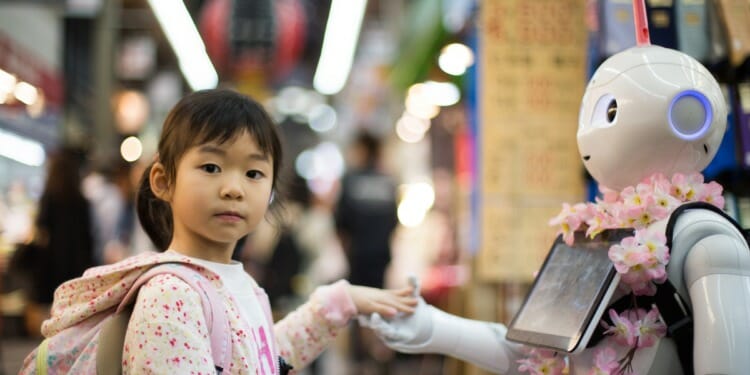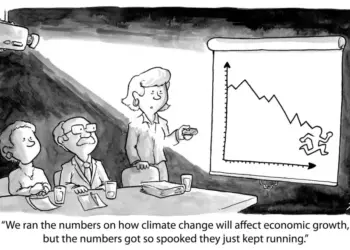Artificial Intelligence (AI) is set to become a “defining future technology.” AI’s ability to display human-like capabilities such as reasoning, learning, planning, and creativity has led to immense worldwide curiosity of its potential extensive powers. It is undeniable that it will be intrinsic to our and future generations’ lives.
For this reason, UNICEF and the government of Finland have decided to host the first ever Global Forum on AI for Children on November 30 to December 1, 2021. It will gather children’s rights and technology experts, policymakers, practitioners, and researchers in a bid to spark conversation on the ways in which we can ensure AI’s positive growth alongside children whilst protecting them from its drawbacks.
Why is UNICEF focusing on this now?
Today, more so than ever before, AI has entered our everyday life. Influencing our social, emotional, and physical well-being. Whether it is through AI-powered algorithms on social media platforms influencing what we view, AI digital assistants, such as Alexa shaping the way we speak, or AI Smart cities moulding the way we travel. Artificial Intelligence is rapidly penetrating within every aspect of our society.
Whilst AI has been shown to influence all humans it has a particular impact on those that are currently “developing” – children and young people.
By the age of 5, 90% of a child’s brain is developed, but it’s at age 8 that brain development is at its most vulnerable stage. This is when “intellectually, emotionally, and physically, they [children] are very shapeable” says Steven Vosloo, UNICEF data, research, and policy specialist.
Artificial Intelligence is embedded in children’s toys, video games, and adaptive learning systems and can now determine a growing number of influential decisions which could impact their lives and developments: from suggesting who to speak to, and what to read, to critical decisions on potentially life-changing matters of health, education, and welfare.
It is this life-changing effect that AI can have on children which led UNICEF to delve into global AI policies, strategies, and guidelines, in order to understand what legislation was there to protect them from its drawbacks.
What they found was almost nothing, except for mere cursory mentions of the word children. It was clear that Children’s rights were an afterthought.
“At UNICEF we saw that AI was a very hot topic, and something that would fundamentally change society and the economy, particularly for the coming generations. But when we looked at national AI strategies, and corporate policies and guidelines, we realised that not enough attention was being paid to children, and to how AI impacts them”
– Steven Vosloo, UNICEF data, research and policy specialist

UNICEF, ahead of the summit, developed a draft policy guidance on AI for children drawing from the 1989 Convention on the Rights of the Child. It follows established AI principles of Privacy, Safety, Fairness, and Explainability, but tailors them to fit the particular effect AI may have on children. These include:
- supporting children’s development and well-being
- ensure inclusion of and for children
- prioritise fairness and non-discrimination for children
- protect children’s data and privacy
- ensure safety for children
- provide transparency, explainability, and accountability for children
- empower governments and businesses with knowledge of AI and children’s rights
- prepare children for present and future developments in AI
- create an enabling environment
Mitigating the drawbacks of AI
The Global Forum on AI for Children is a much-needed development especially as we have seen that AI can breach a child’s privacy, safety, and hold algorithmic bias without his/her knowledge.

AI machine-learning toys, for example, use natural language processing to understand words and instructions. In effect it collects a lot of data from that child, including intimate conversations, which are then stored in the cloud. The length of time a company can store this data depends on the country. In the US, companies who create “educational toys” can store data for longer than other companies to create better products, in effect allowing other companies to describe themselves as such in order to gain the right to store data for longer.
Related Articles: The Race for Artificial Intelligence: China vs. America | Technology Trends Transforming the World | Virtual Therapy, Real Results: How VR Helps Treat PTSD
This raises concerns on how we can safeguard the child’s right to privacy and safety within the context of AI-powered educational toys. Germany has already banned Cayla and similar toys in fear that someone could hack the device and communicate directly with the child or spy on them.
The UK’s 2020 GCSE and A-Level grading controversy is another example on how AI-powered algorithms can negatively impact children. As a result of the covid-19 pandemic end-of-year exams had to be cancelled. The government decided to predict the grades based on two variables: (1) the ranking of students within a school and, (2) their school’s historical performance. As a result of algorithmic bias, the result severely penalised students from poorer performing schools and led to 79% of children missing the grades to enter university.
Experts have also raised concern on the risk that AI could have on the overall future behaviour and development of children. Fearing that if misused AI could encourage bad habits such as tech addiction, or whether AI could truly mould and shape the worldview of children through videos and content that it recommends to them.
With the Global Forum on AI for Children, UNICEF hopes to shed light on the idea that the way a child interacts with AI today, can have long-lasting consequences for their growth and future. UNICEF hopes that it can encourage governments to protect children against the drawbacks of AI whilst empowering them and giving them the agency to shape their future.
AI can and will improve children’s growth and well-being
This technology has immense benefits. If designed well, AI-based learning tools have been shown to improve children’s critical-thinking, and problem-solving skills. It can help provide academic support when parents are occupied or assist them alongside over-burdened school classes.

Research has found that AI can help children on the autism spectrum in a multitude of ways. It can help improve specific motor skills, direct eye contact, and communication skills. AI can also provide emotional assistance, which has been shown to improve the social skills of autistic children.
AI-powered facial recognition systems, if used within careful limits, could also help identify children who have been kidnapped or trafficked.
The list of potential benefits that AI provides, if used within limits, are immense. But we must understand that when a child interacts with AI, what they say, do, and watch can be stored without their direct approval for years and years. This could have a drastic impact on their future, and negative consequences beyond their control.
Editor’s Note: The opinions expressed here by Impakter.com columnists are their own, not those of Impakter.com. — In the Featured Photo: A little girl making friends with a robot in Kuromon Market in Osaka, Japan. Featured Photo Credit: Andy Kelly.










